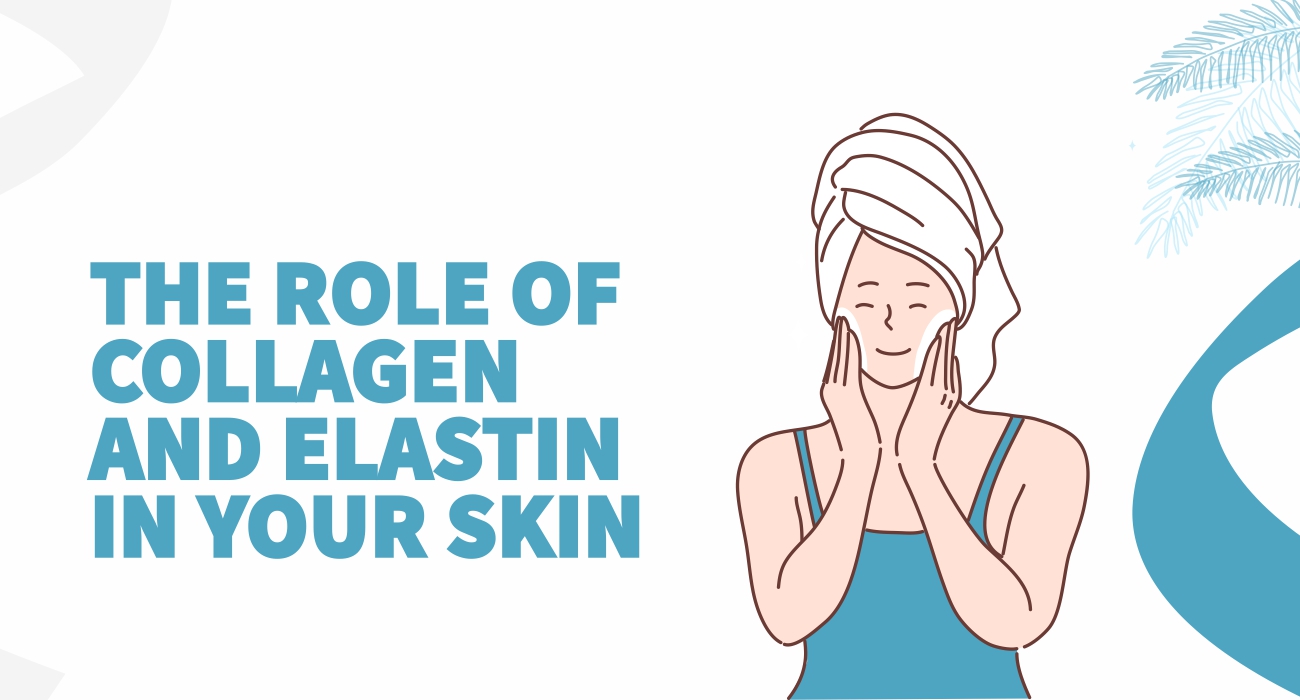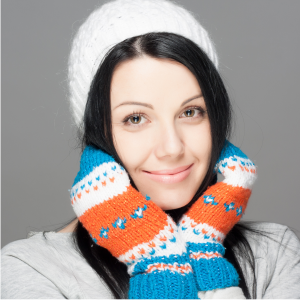
The main players behind skin aging: Collagen & Elastin
Collagen makes up 30% of the protein content in humans. It is the main component of the extracellular matrix (ECM), which provides support, and structure to tissues and maintains skin firmness and elasticity. Collagen is produced by cells called Fibroblasts. In addition to producing collagen, fibroblasts also produce elastin, a protein that gives skin flexibility and allows it to stretch and return to its original shape. Reduced levels of collagen and elastin are the main cause of accelerated skin aging, sagging, fine lines, wrinkles, etc.

Many anti-aging strategies target the proliferation and activation of fibroblasts to increase the levels of collagen and elastin. A wide range of ingredients such as peptides, antioxidants, retinoids, and vitamins has shown the ability to impact fibroblasts and can have a direct or indirect influence on collagen and elastin levels.
Collagen & Elastin through life stages
Collagen production declines by 1-1.5% per year from early adulthood, with fibroblasts becoming less active. As collagen levels begin to decline, the collagen structure becomes more fragile and brittle, weakening the skin's structural support. This can cause the skin to lose volume and firmness, causing wrinkles. The reduction in collagen production also coincides with a loss of hyaluronic acid, that further impacts the hydration and suppleness of the skin.
Factors such as smoking, pollution, free radicals, diet, and sun exposure worsen collagen levels. However, studies have shown that consuming collagen peptides and other active compounds can stimulate fibroblasts to produce more collagen, elastin, and hyaluronic acid, which can rejuvenate skin and other tissues.
Anti-aging strategies to boost collagen levels
- Collagen supplements: collagen peptides in supplements directly affect fibroblasts.
- Compounds such as hyaluronic acid, vitamin C, antioxidants, and retinol boosts collagen and elastin levels in the skin.
- Invasive procedures such as red light therapy, chemical peelings, injectable skin biosimulation & rejuvenation.

However, when it comes to skin aging the signs often start to build up before it is visible on the skin and the options available in the market right now are not always suitable for all skin types and are often expensive.
But what if there is a way to find out how your skin ages before you see any signs? Or know what kind of products and ingredients suit your skin best and give the maximum results. Here’s where MapmyGenome’s DNA-based test called BeautyMap™ comes into action.
How MapMyGenome’s BeautyMap™ can help you?
BeautyMap™ helps you understand your skin and hair better along with giving you personalized recommendations to adopt a preventive and proactive skin & hair care regimen.
Conditions such as collagen depletion, skin elasticity, and hydration, that are covered in BeautyMap™ gives you a risk associated with skin texture and aging. BeautyMap™ can be used to understand how fast your skin aging process is happening and what ingredients can be used to achieve healthy-looking skin.
Apart from these conditions. BeautyMap™ also provides insights on 40+ conditions such as acne, sun photoactivity, and nutritional requirements as well as a free genetic counseling session.
References
https://parjournal.net/article/view/3863#sec11
https://www.ncbi.nlm.nih.gov/pmc/articles/PMC3583892/

